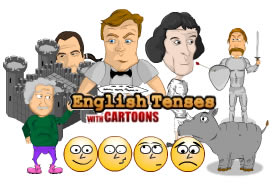Macam-macam ekspresi dalam bahasa inggris
Expressing Promise
1.Come on …..
2.Can I/ Could I/ Couldn’t I persuade you…..?
3.How can I persuade you to…?
4.Couldn’t you be persuaded…?
5.Won’t you …. Please?
6.I think it would be a pity I’d we didn’t …..
7.Why don’t you…..?
8.I wish I could
9.We feel you should go ahead.
expressions of encouragement
1.You have my support.
2.Don’t worry. I am sure you’ll do better this time.
3.You can do it.
4.We feel you should go ahead.
5.Well done
6.You’re doing very well.
expressions of criticism
1.The film is totally boring.
2.What’s ridiculous movie!
3.I can’t stand the rudeness.
4.You’d be well advisen to / not to
5.I’d say ….
expressions of prevention
1.I must try to prevent …..
2.We can’t do much to prevent ……
3.I woludn’t do that ….. If I were you.
4.It is not a good idea.
5.I think it is not wise to do that.
6.I think that’s not a good idea. You’d better cancel your plan.
7.I wouldn’t take the risk if I were in your position.
the possible answer
I’ll consider that.
I’ll think that.
I’ll reschedule my plan.
expressions of plan, intention and purposes
1.I plan to….
2.I am planning to….
3.I am going to…
4.I intend to….
5.I am thinking of …..
6.I want to….
7.I desire …
8.I reckon I will,,,,,
expressions of prediction
1.I would say …
2.I predict that ….
3.I guess …
4.I think ….
Possible responses
1.I think so
2.I can be
3.I don’t think so
4.My prediction is …
5.I think its well grounded.
expressions of speculation
1.We can speculate
2.I speculate
Possible responses
1.Its worth speculating
2.I can be
expressions of assessing
1.I think the movies is ….
2.What a cruel movie!
3.The jokes are really funny.
4.It is the worst performance. I’ve ever seen…
Semoga bermanfaat…..
- I swear
- I promise that
- That’s promise
- Keep your promise
- Don’t break your promise
- I give you my word on that
- You have my word on that
- Great job
- Well done
- It’s sactifiying
- It’s Disappointed
- I’m really disappointed
- I’m sactifiying
- Great, good work
- I feel that
- I think that
- According to
- What is your opinion?
- What do you think about?
- What do you think of?
- In my opinion
- Do you belive it
- I don’t belive you
- Are you kidding?
- Are you serious?
- Are you jocking?
- Really?
- Did you?
- Oh my goodness
- Can you imagine that?
- Wouldn’t you believe it
- I hope
- I wish
- I think so
- Let’s hope
- May god bless you
- May your dream come true
- I look forward to
- Hopefully
- I expect that
1.Come on …..
2.Can I/ Could I/ Couldn’t I persuade you…..?
3.How can I persuade you to…?
4.Couldn’t you be persuaded…?
5.Won’t you …. Please?
6.I think it would be a pity I’d we didn’t …..
7.Why don’t you…..?
8.I wish I could
9.We feel you should go ahead.
expressions of encouragement
1.You have my support.
2.Don’t worry. I am sure you’ll do better this time.
3.You can do it.
4.We feel you should go ahead.
5.Well done
6.You’re doing very well.
expressions of criticism
1.The film is totally boring.
2.What’s ridiculous movie!
3.I can’t stand the rudeness.
4.You’d be well advisen to / not to
5.I’d say ….
expressions of prevention
1.I must try to prevent …..
2.We can’t do much to prevent ……
3.I woludn’t do that ….. If I were you.
4.It is not a good idea.
5.I think it is not wise to do that.
6.I think that’s not a good idea. You’d better cancel your plan.
7.I wouldn’t take the risk if I were in your position.
the possible answer
I’ll consider that.
I’ll think that.
I’ll reschedule my plan.
expressions of plan, intention and purposes
1.I plan to….
2.I am planning to….
3.I am going to…
4.I intend to….
5.I am thinking of …..
6.I want to….
7.I desire …
8.I reckon I will,,,,,
expressions of prediction
1.I would say …
2.I predict that ….
3.I guess …
4.I think ….
Possible responses
1.I think so
2.I can be
3.I don’t think so
4.My prediction is …
5.I think its well grounded.
expressions of speculation
1.We can speculate
2.I speculate
Possible responses
1.Its worth speculating
2.I can be
expressions of assessing
1.I think the movies is ….
2.What a cruel movie!
3.The jokes are really funny.
4.It is the worst performance. I’ve ever seen…
Semoga bermanfaat…..





